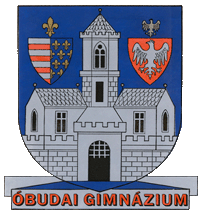
SUMMARY OF THE PROJECT
The quality management and internationalization of Obudai Secondary School aimed at making the institution able to provide its goals to teach European values to its students in order to prepare them for being 21st century European citizens.
Participants for the projects were chosen from among foreign language teachers as we believed that through refreshing their methodological array, and personal and professional competences their students and colleagues not participating in the projects may benefit from the perspectives and methods brought home with them. Our winning grant provided four colleagues with the opportunity to participate in mobilities. The participants were aged between 39-48, all female who had a minimum of 15 years of teaching experiences and had been working for almost 5 years together, thus having similar organizational values and backgrounds. Apart from them, the school psychologist had a major role in the project after the mobilities in helping in the evaluation process.
The activities were all 10-day long, structured teacher training courses on the topics of cultural values and content (Ireland), didactics (Italy), oral skills development and teaching creative writing with new methods (England), and up-to-date language use and IT in teaching and learning processes (Latvia).
Among the results of the project are the language and communication skills development of the participants, their methodological stimulation of their teaching practices, the improvement of their cultural knowledge and sharing good practices with colleagues. In addition, our students' openness and acceptance level increased together with the ability of mindfulness of the participants during the mobility. Furthermore, our expected results included the mental refreshment of the participants, which in the end exceeded our expectations. The results of the research plan we handed in the grant application with showed that the mobilities, and the coaching we employed during the project, strengthened the mental well-being and the emotional intelligence of the participants together with their psychological immune system. What is more, we could help colleagues showing the symptoms of burn out not to want to leave the profession, but rather by addressing their coping strategies, the project could help them manage their professional motivational level. Thus, their professional motivation gained momentum and they have abandoned the optional idea of leaving the profession.
The long-term advantages of the project is that the participants could look into the cultural and feasibility characteristics of international partnerships, established relationships for future cooperation and built communication channels to obtain and share information concerning these future projects.
